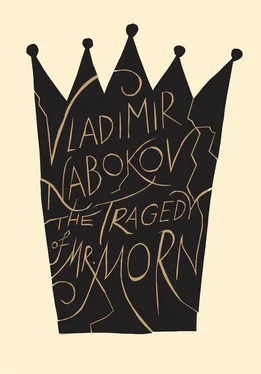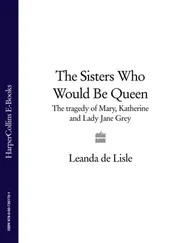If, in its treatment of revolutionary ideology, death, and desire, Morn shows us elements that Nabokov would not develop again, or not for a long time, there is one respect in which it stands very obviously as the source of Nabokov’s immediately subsequent writing, and this is in its exploration of the twin themes of happiness and make-believe. In 1924, Nabokov would begin writing his first novel, Happiness . The novel was aborted and its drafts are now lost, but there is no question that its title expresses one of the central themes of Nabokov’s oeuvre, in which happiness is a mysterious variable, “the zany of its own mortality,” as Sebastian Knight calls it, no sooner found than lost, but always something much more profound than anything “happiness” means in modern use, where it merely names the mirage evoked by the goals we set ourselves. As for make-believe, it is central to Nabokov’s work that any reality worth caring about is one freshly imagined, that, as he puts it in Strong Opinions (1973), “average reality begins to rot and stink as soon as the act of individual creation ceases to animate a subjectively perceived texture,” and therefore that, as Vadim’s aunt tells him in Chapter 2 of Nabokov’s final complete novel, Look at the Harlequins! (1974), it is a fundamental imperative for every person that in art and life he should “Play! Invent the world! Create it!” The theme of make-believe also links Morn to two other verse-plays which Nabokov had written in 1923 before embarking on Morn , the one-act closet dramas Death and The Pole , which together mark out the two poles between which Morn moves: in the first, a cynical intellectual related in mentality to Tremens presses the view of illusion as arrant deceit; while the second heroizes Captain Scott, the quixotic Antarctic explorer, a Morn-like figure whose steadfast courage inspires and sustains his followers, who always seems to be playing, even in the face of death, and who is, like Morn, recognized by his laughter.
In Morn Nabokov gave these themes a political significance more explicit than any we find in his later work. Against the revolutionary politics, grounded in the ideals of equality, sameness, and even death, that Tremens and Klian embody, Nabokov postulates a conservative politics, animated by an ideal of happiness. As Morn says, he
…created
an age of happiness, an age of harmony… God,
give me strength… Playfully, lightly I ruled;
I appeared in a black mask in the ringing hall,
before my cold, decrepit senators… masterfully
I revived them—and left again, laughing…
( III.i.)
Morn’s example has aestheticized the world, restoring order by turning it into a fairy tale or a play: if even the King is an actor, then all identity is not something sovereign but something performed, and he shows people how to act as they would wish to be. He is a fantasy of the Foreigner, a mysterious figure who enters at the beginning and the end of the play and comes from the real world of revolutionary Russia:
…In our country all is not well,
not well… When I wake up, I will tell them
what a magnificent king I dreamt of…
( V.ii.)
The implicit argument of Morn is that for the sake of order, morality, and happiness in the real world, people must make-believe in the possibility of an ideal world. The play takes place in an imaginary kingdom repeatedly described as having the air of a skazka or fairy tale. In a synopsis of the play, Nabokov described this atmosphere as “neoromanticism,” saying that the setting of the play took “something from the 18th Century Venice of Casanova and from the 30s [the 1830s] of the Petersburg epoch.” It also borrows from Shakespeare, for in Morn , as in Shakespeare’s history plays such as Richard III , the state is, necessarily, a play or pageant; a secret passage leads from the throne-room to the theatre. This is one of the many details that Nabokov would reuse nearly forty years later in his most metafictive work, Pale Fire (1962), in which an imaginary poet and imaginary king conjure with each other’s existences. Kinbote, the imaginary King of Zembla, or semblance, may have assassinated Shade, the imaginary poet, just as in Morn Tremens says: “it’s a shame, Dandilio, that the imaginary/thief did not destroy the made-up king!” ( V.i.). But in Morn , as later in Pale Fire , this kingdom of imagination is all too precarious: Tremens is determined to unmask Morn’s happy reign of make-believe as a cynical fraud, and to tear down the civic order it supports. He succeeds in doing so, until a false rumour that Morn fled for love, not cowardice, reignites the romanticism of the people. It is to defend that illusion that Morn, ultimately, must kill himself.
This idea of kingship as theatre, or as a work of imagination, is one of the many respects in which Morn is indebted to Shakespeare. The heavy crown is a symbol of the burdensomeness of power, as it is in Shakespeare’s history plays, such as Henry IV, Part 2 , towards the end of which Prince Henry stares uneasily at the crown lying on his dying father’s pillow, “so troublesome a bedfellow,” which, he says, “dost pinch thy bearer,” and “dost sit/Like a rich armour worn in heat of day,/That scalds with safety” (IV.v.22, 29–31). In Morn , too, the “fiery crown” burns and squeezes with “its diamond pain,” and Morn complains that
…The stupefied mob
does not know that the knight’s body is dark
and sweaty, locked in its fairy tale armour…
( V.ii.)
From Shakespeare, too, Nabokov drew a series of metaphors for civic order which could be deployed to warn against the rash alterations of Bolshevism. The kingdom is like the human body, so that Tremens’s fever symbolizes the convulsions he wishes upon the state, as, again, in Henry IV , Part 2 , where the Archbishop of York declares that
…we are all diseased,
And with our surfeiting and wanton hours
Have brought ourselves into a burning fever,
And we must bleed for it.
(IV.i. 54–57)
Or the kingdom is like music, as Ganus argues when he says that “The power of the King/is living and harmonious, it moves me now/like music” ( I.i.), echoing an idea most famously expressed in a speech given by Ulysses in Shakespeare’s Troilus and Cressida , The same idea is implicit in The Tempest , a play with which Morn is associated through the kinship between Prospero and Morn, both of them magician-kings. But the Shakespeare play most obviously linked to Morn is Othello : Ella dresses Ganus up as Othello so that he can visit Midia unobserved, and she twice quotes the lines Desdemona utters when Othello is about to smother her (the first time slightly misquoting them). The Tragedy of Mister Morn is less concerned with doubling, and with the duality of human nature, than Nabokov’s later works. But here already, it is clear that when Ganus wears Othello’s face, he discovers in himself a shadow side, a dark jealousy like that which blackened and distorted Othello. Conversely, Morn, by wearing a mask, becomes a nameless sovereign, King X, as Nabokov calls him in the synopsis, the variable upon which a lucky people can project their fantasies of happiness and order; and when he is unmasked by his cowardice, he betrays not only the ideals of his people and his own self-respect but even the identity and integrity he had once seen when he gazed into the healing silver of the mirror.
But in Morn Nabokov was trying to emulate Shakespeare not only at the level of image and symbol, but also of character and drama, register and rhythm. The simplest expression of this is that Morn is written in the iambic pentameter of Shakespearean tragedy, though Nabokov is more strictly regular in his rhythmic patterns than Shakespeare. Though Morn’ s prosody alludes to Shakespeare, it does so through the mediation of Pushkin’s “little tragedies” (all written in 1830, the most famous of which is Mozart and Salieri ). More specifically Shakespearean—and un-Pushkinian—is the language of Morn , which, especially in the philosophic speeches of Tremens, Klian, Morn and Dandilio, is densely metaphorical and highly compressed in the manner of late Shakespeare. So Morn, saying farewell to Midia, justifies the aberrations of fate by comparing life to music, before suddenly shifting the already difficult metaphor into another key, comparing the music of existence to the structure of a building whose details can detract from an appreciation of its overall harmony:
Читать дальше










